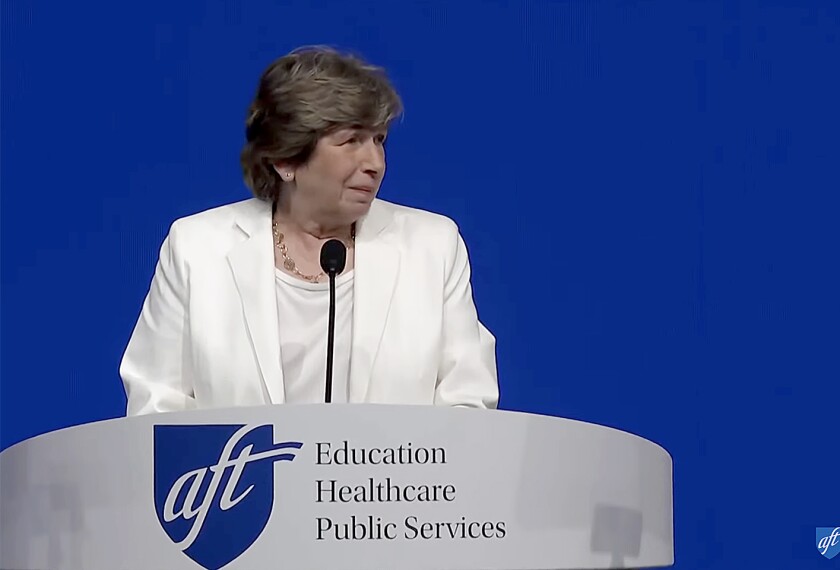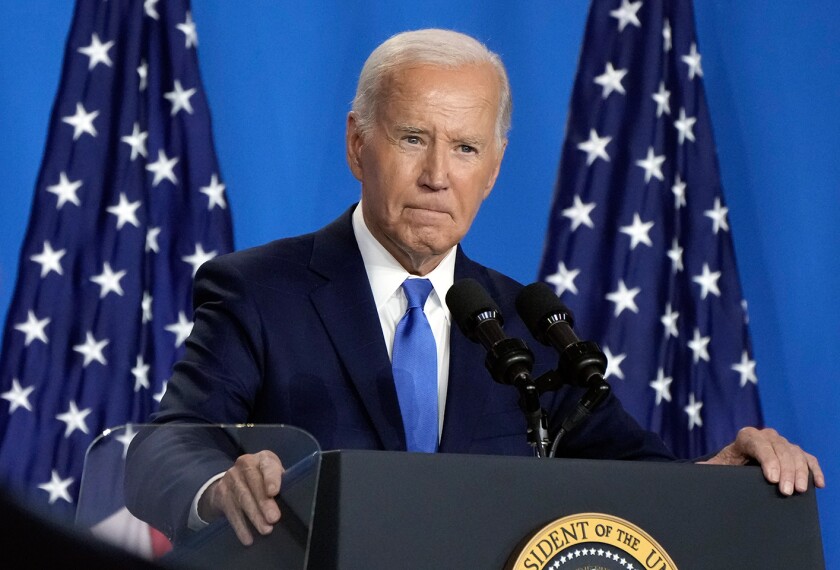School employees should be included among “frontline essential workers” who are vaccinated against COVID-19 in the next phase of state campaigns, a federal panel recommended Sunday.
State plans vary, and it’s ultimately up to governors to determine how closely they follow federal guidelines.
But the Sunday vote, by the Centers for Disease Control and Prevention’s Advisory Committee on Immunization Practices notably departed from a previous, tentative timeline by creating a narrower classification of about 30 million frontline workers, who are “in sectors essential to the functioning of society and are at substantially higher risk of exposure” because they work directly with the public. The panel included teachers and school support staff in that category alongside workers in other sectors, like firefighters, police officers, grocery store employees, and postal workers.
A previous timeline included school employees with a broader “essential worker group,” which is an expansive definition set by the U.S. Department of Homeland Security. Groups representing a variety of economic sectors, including some without frequent interaction with the public, have lobbied to be prioritized as part of that group.
“This is just one of the many difficult choices that we as a society have faced this year,” said Nancy Messonnier, director of the National Center for Immunization and Respiratory Diseases at the CDC. “We certainly understand that this guidance will need to be translated to a local context.”
Sunday’s vote came after most states have announced plans to prioritize teachers in their priority populations set to receive scarce doses before there is enough supply for the general public. Even in the last week, some states have adjusted their plans, and others may do so throughout the mass inoculation effort.
As Education Week recently reported, states’ plans are informed by recommendations from the federal panel. While many plans place school employees near the front of the line, citing concerns about keeping schools open, exactly when those workers receive vaccines may vary depending on how quickly supplies become available, how states determine where to focus limited supplies, and logistical factors associated with distribution.
Following a previous committee recommendation, states have started vaccinating people in the first priority phase: health-care workers at risk of COVID-19 exposure and residents of long-term care facilities.
When there are enough supplies available, the panel formally recommended Sunday, states should focus on people aged 75 and older and frontline essential workers, a group that includes an estimated 49 million people.
After that phase, the recommendation says, states should vaccinate people 65 and older, people with high-risk medical conditions, and other essential workers who aren’t in the frontline group but play a role essential to the “functioning of society,” like people who work in housing construction, banking, and legal professions.
The decision to include teachers in the frontline worker category is notable as some districts are still in remote learning with teachers working from home. But public officials have identified reopening schools and keeping them open as a top priority. And many have said they hope vaccines will help address school employees’ fears about transmission within buildings.
So when will teachers in your state get a vaccine?
It’s still too early to mark a calendar with a specific date.
The committee’s vote came as the U.S. is poised to begin distribution of a vaccine developed by biotech firm Moderna, which won federal approval Saturday.
Federal officials forecast that initial supplies of the new vaccine and the previously approved Pfizer/BioNTech vaccine will be enough to fully vaccinate 20 million people by the end of December. But the FDA committee estimates there are 24 million people in the current, top-tier priority group, exceeding that initial supply. And states have reported receiving fewer doses than they anticipated.
Federal projections suggest the U.S. may vaccinate 30 million people in January and 50 million people in February.
In addition, states may set narrower priority bands than the federal guidance suggests, or they may first target certain geographic regions or employees who are part of at-risk population groups that have been disproportionately affected by the pandemic.







